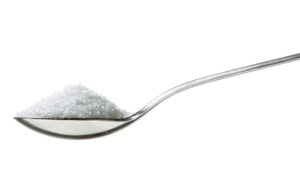Clearer food labelling could reduce the UK’s salt intake and reduce stomach cancer cases, say experts
 Health experts have called for ‘traffic light’ labels on all food packaging in a bid to decrease the number of stomach cancer cases linked to excessive salt consumption.
Health experts have called for ‘traffic light’ labels on all food packaging in a bid to decrease the number of stomach cancer cases linked to excessive salt consumption.
Every year there are approximately 7,500 stomach cancer cases diagnosed in the UK, with 5,000 of that total not surviving the disease. One in seven cases, however, could be prevented if we were to cut down our consumption of salt.
As a nation, we consume far too much salt. Ideally, we should be consuming no more than six grams a day – which is equal to a level teaspoon. That may sound simple, easy even, but on average UK residents consume 8.6 grams, with much of their intake coming from processed foods to which it is already added.
Salt is thought to contribute to cancer by inflicting damage upon the lining of the stomach – it is also linked to numerous other conditions such as high blood pressure, stroke and heart disease.
In order to make consumers more aware of the true levels of salt in the foods they are purchasing and to assist them in monitoring consumption, the World Cancer Research Fund (WCRF) is calling for a standardised form of colour-coded “traffic light” food labelling.
Head of information over at the charity Kate Mendoza said: “Stomach cancer is difficult to treat successfully because most cases are not caught until the disease is well-established.
“Because around three-quarters of the salt we consume is already in processed food when we buy it, WCRF would like to see traffic light labelling on the front of food and drink packaging to give clear guidance on the levels of salt as well as sugar, fat and saturated fat.”
For information about Healthy Eating, please visit our fact-sheet.
View and comment on the original Guardian article.

Find a nutritionist dealing with Healthy eating
All nutrition professionals are verified





